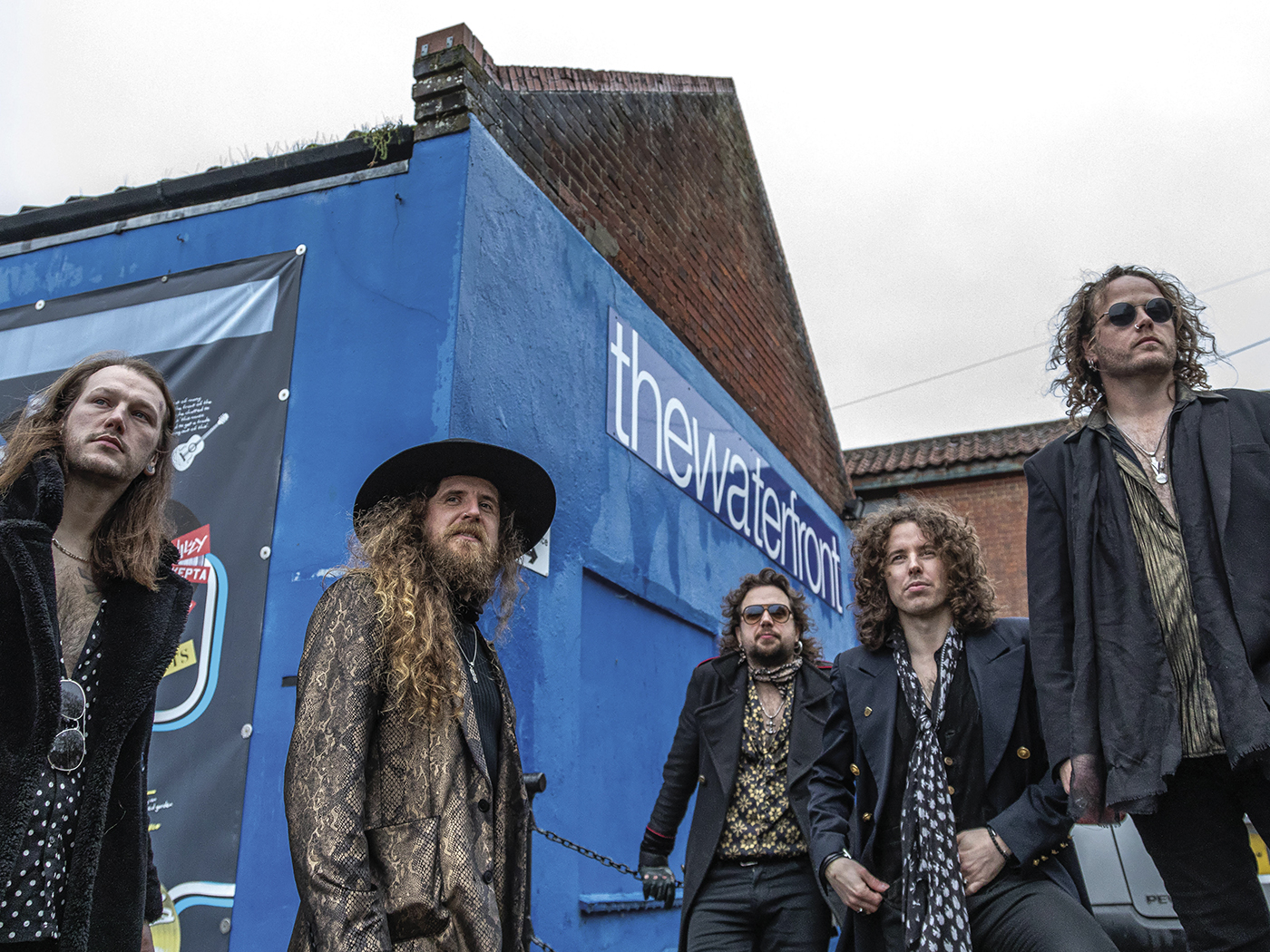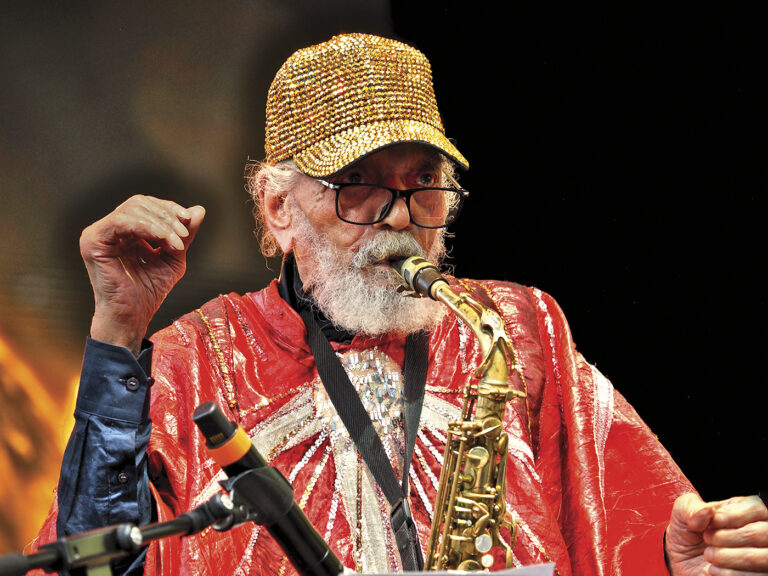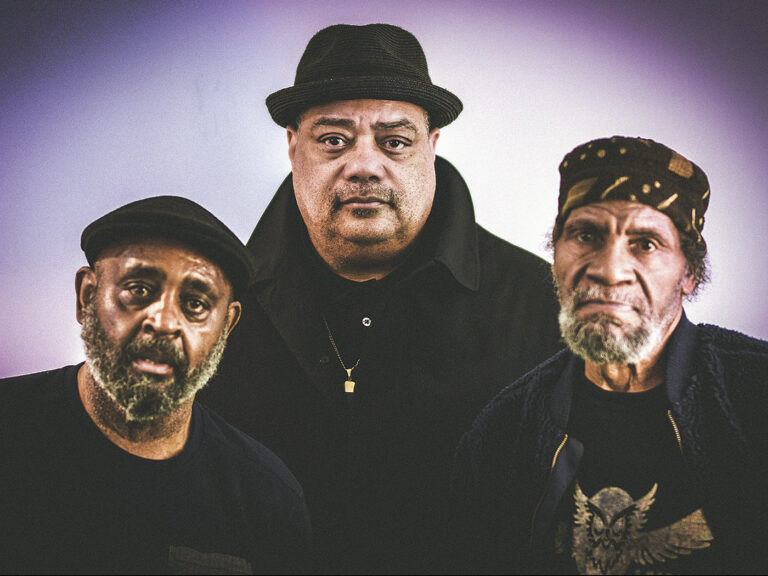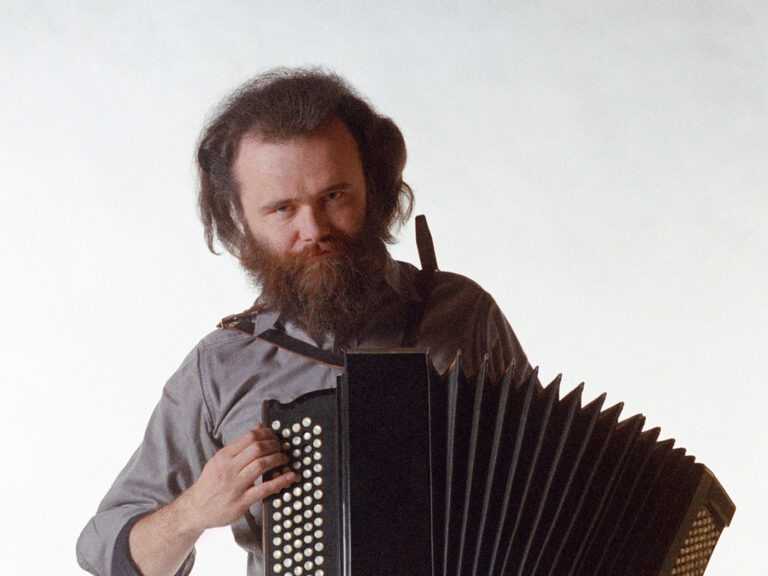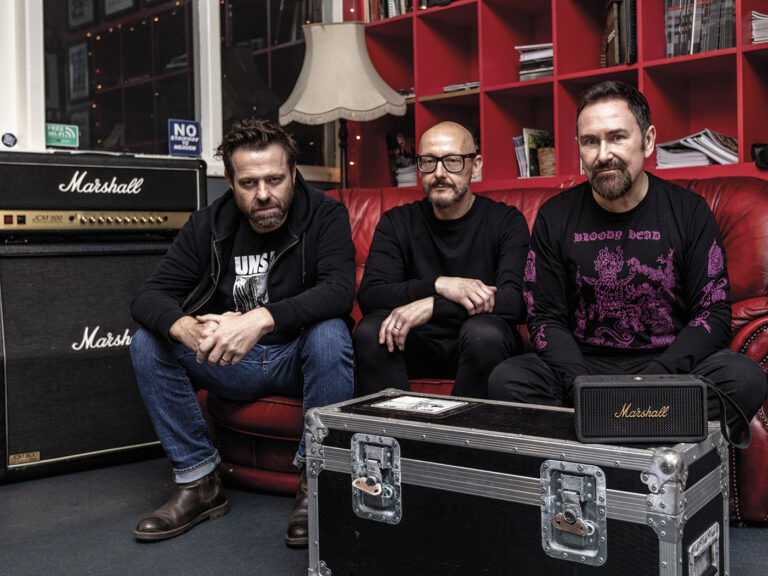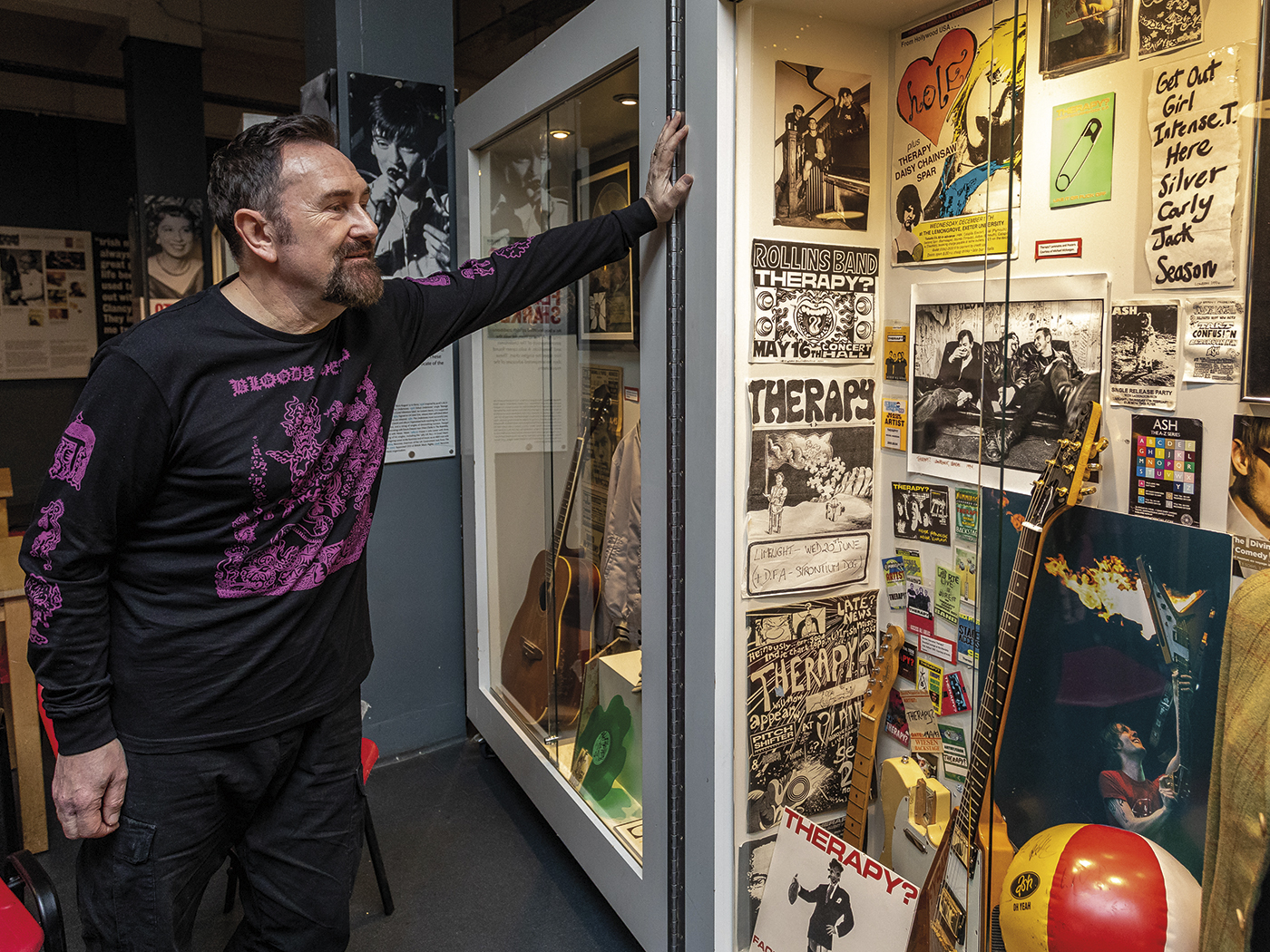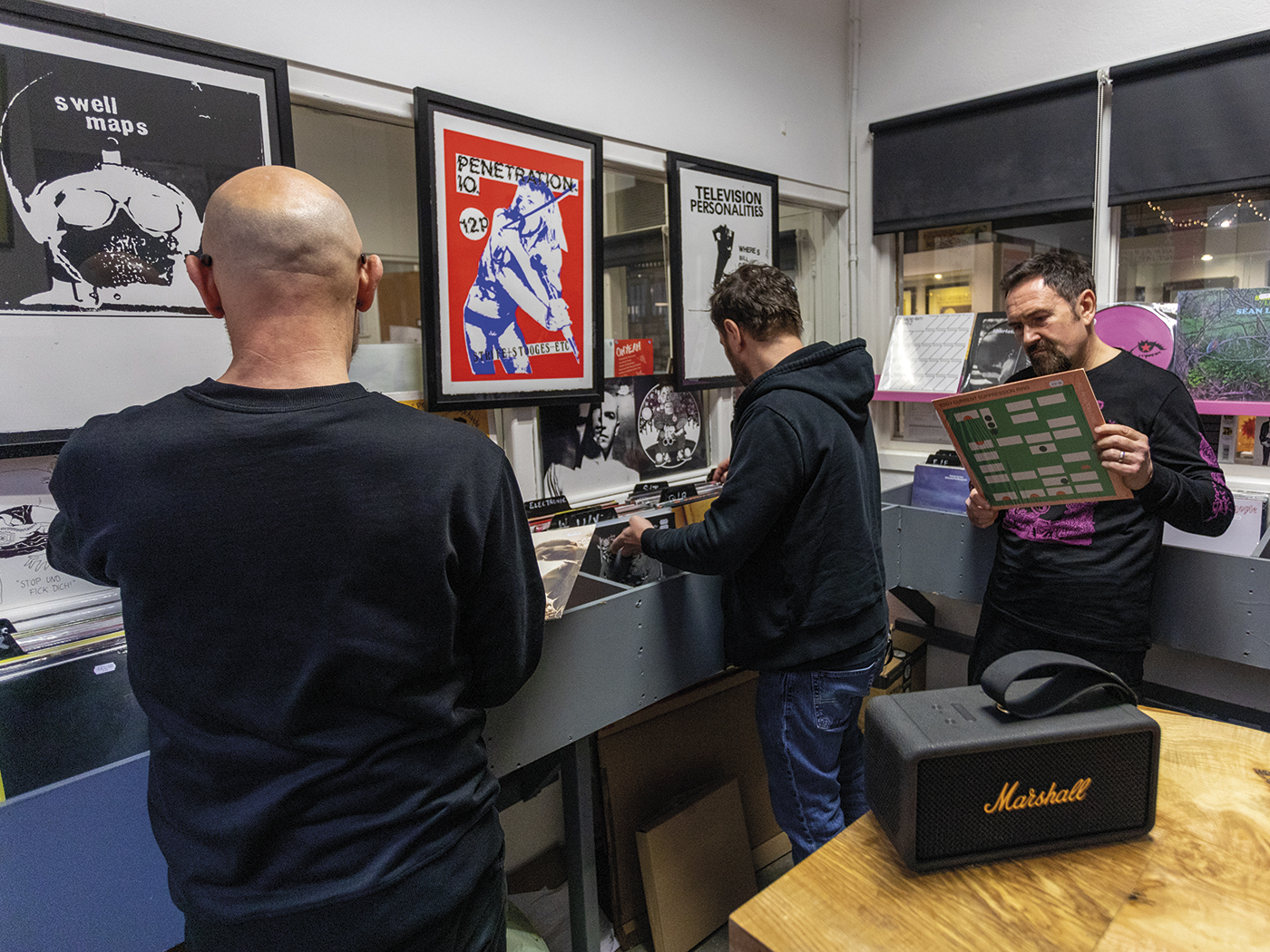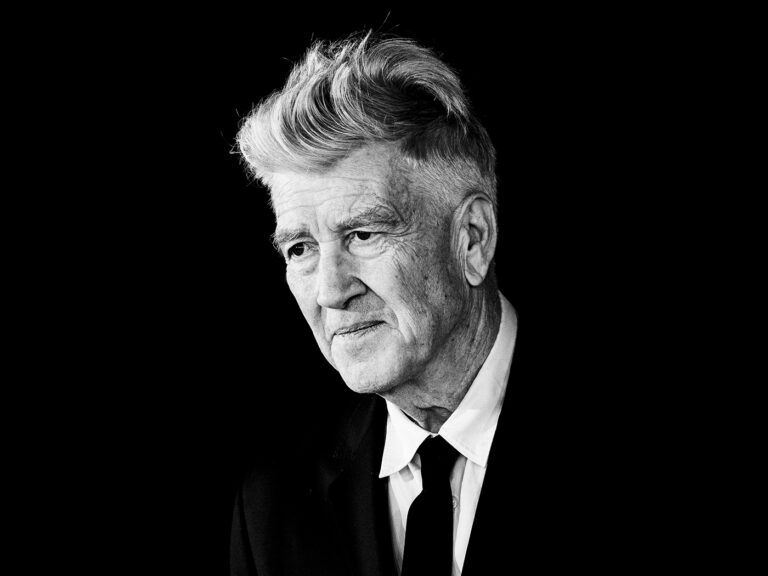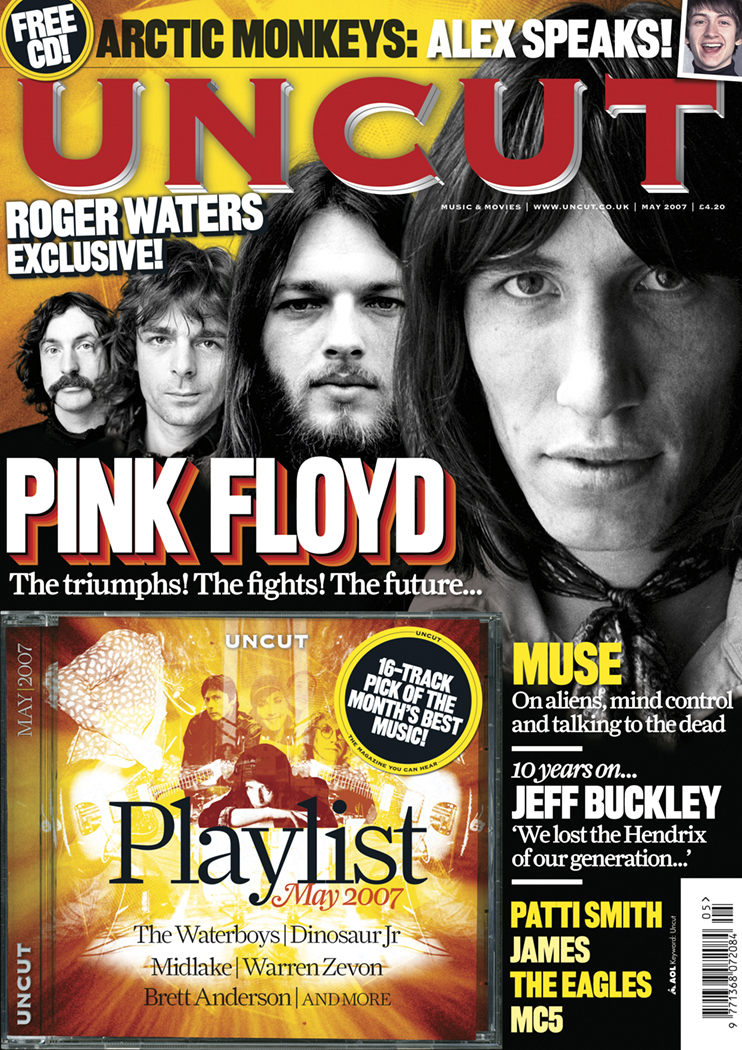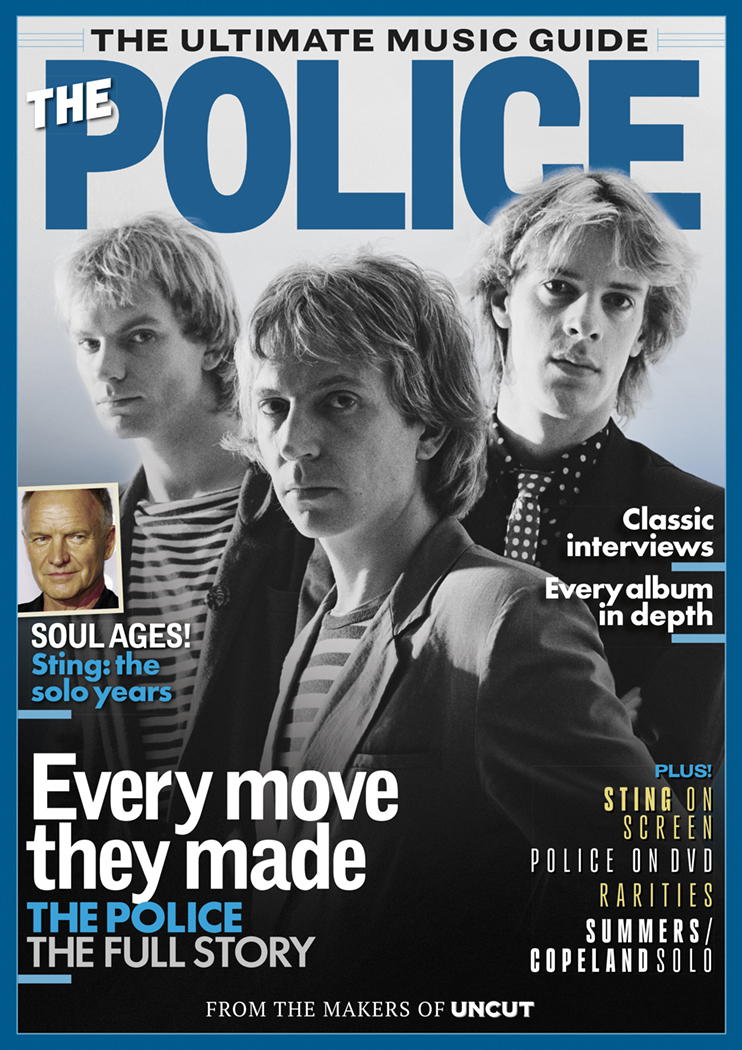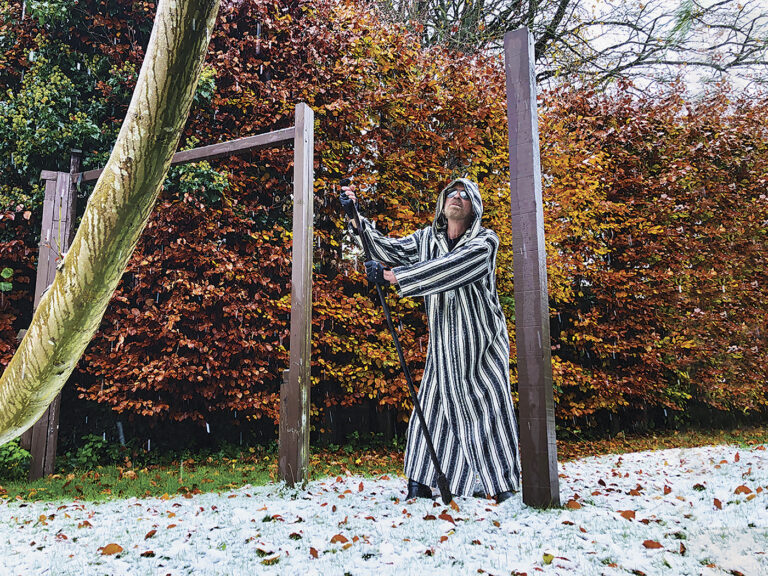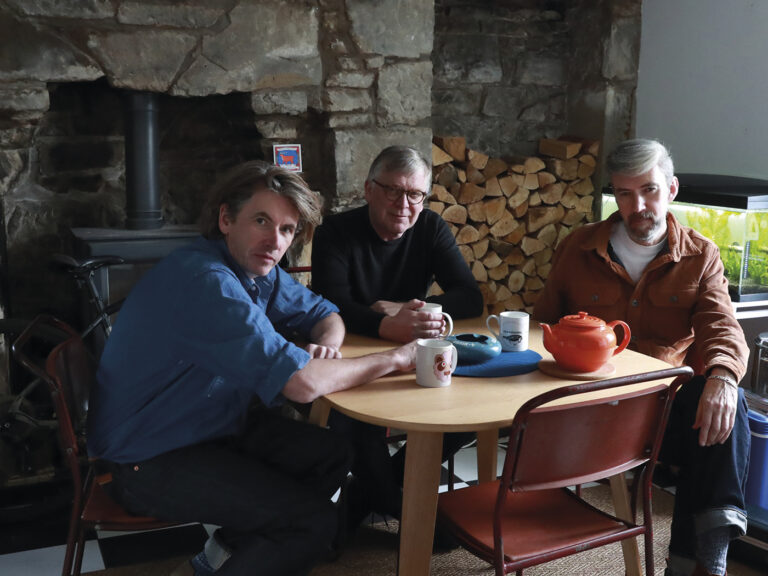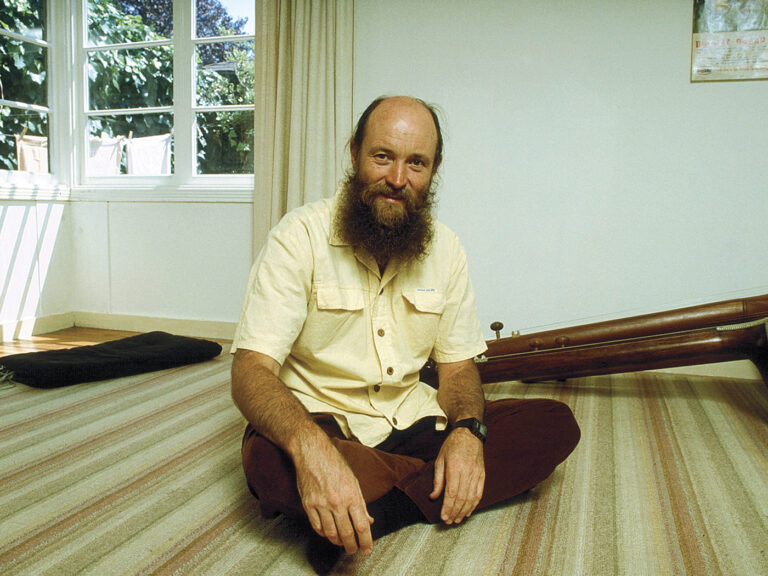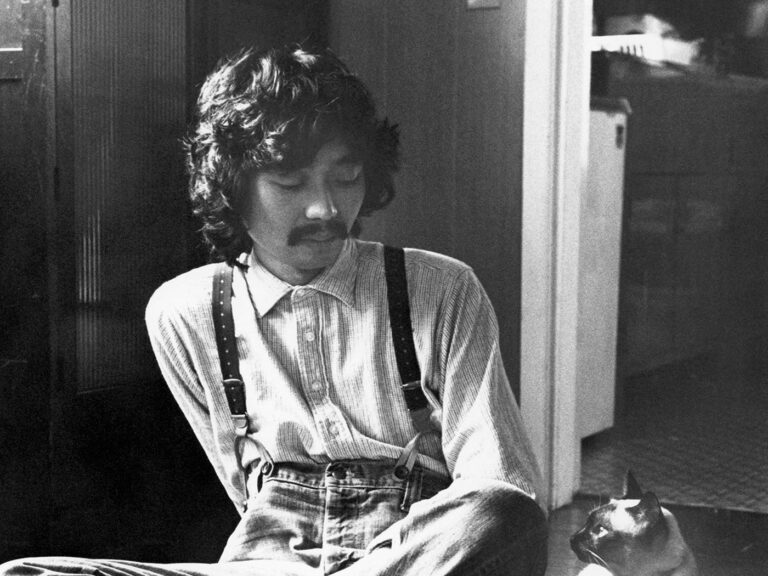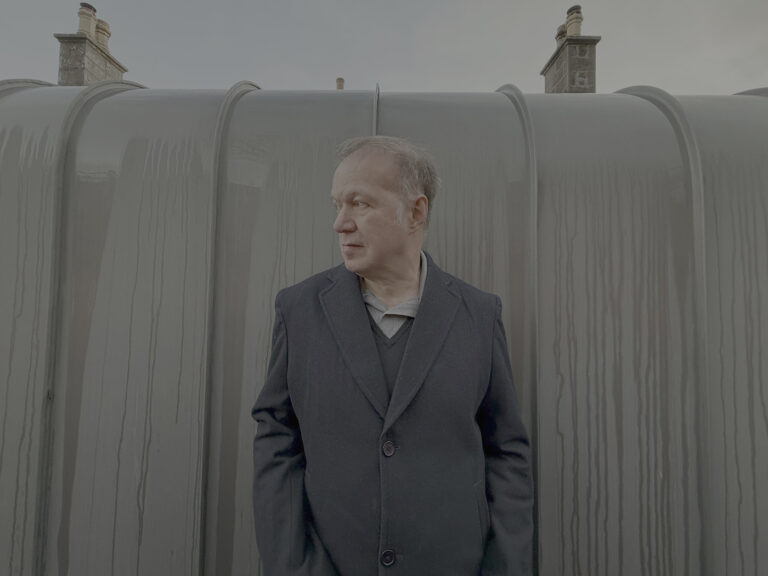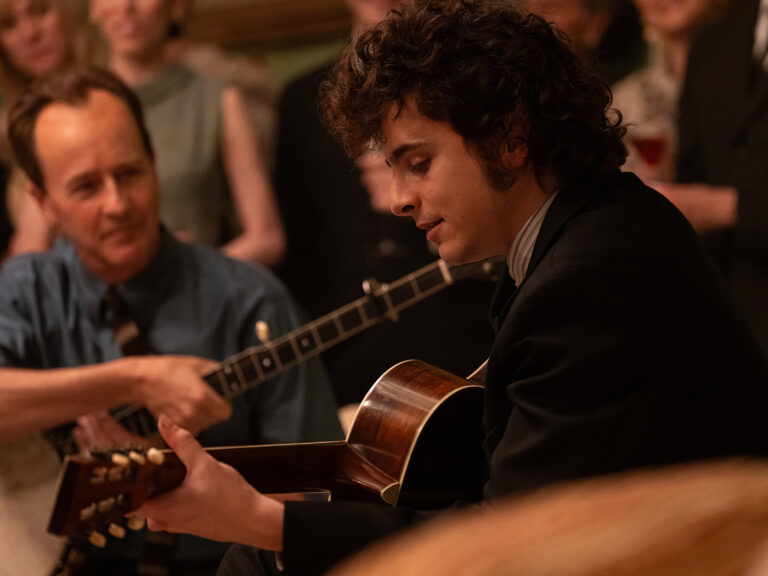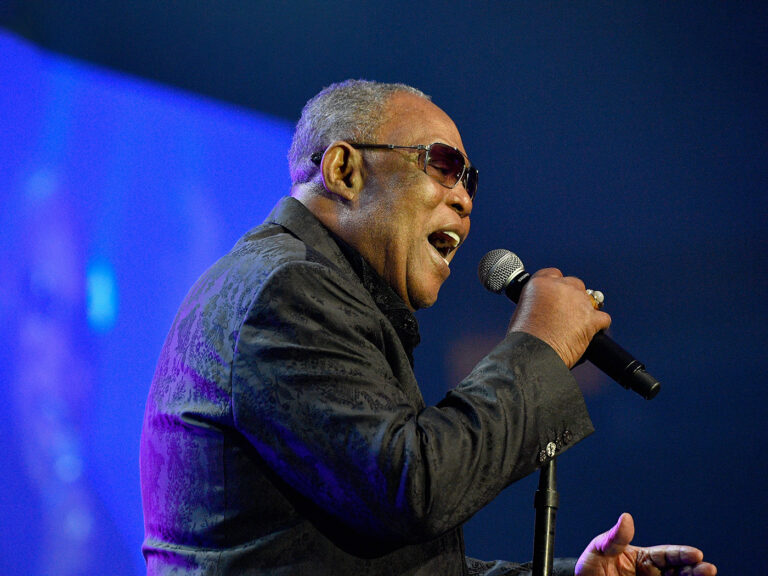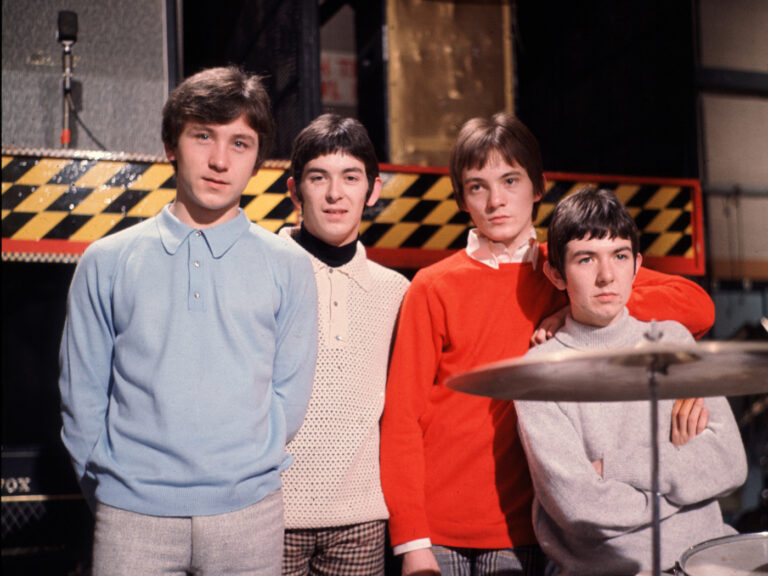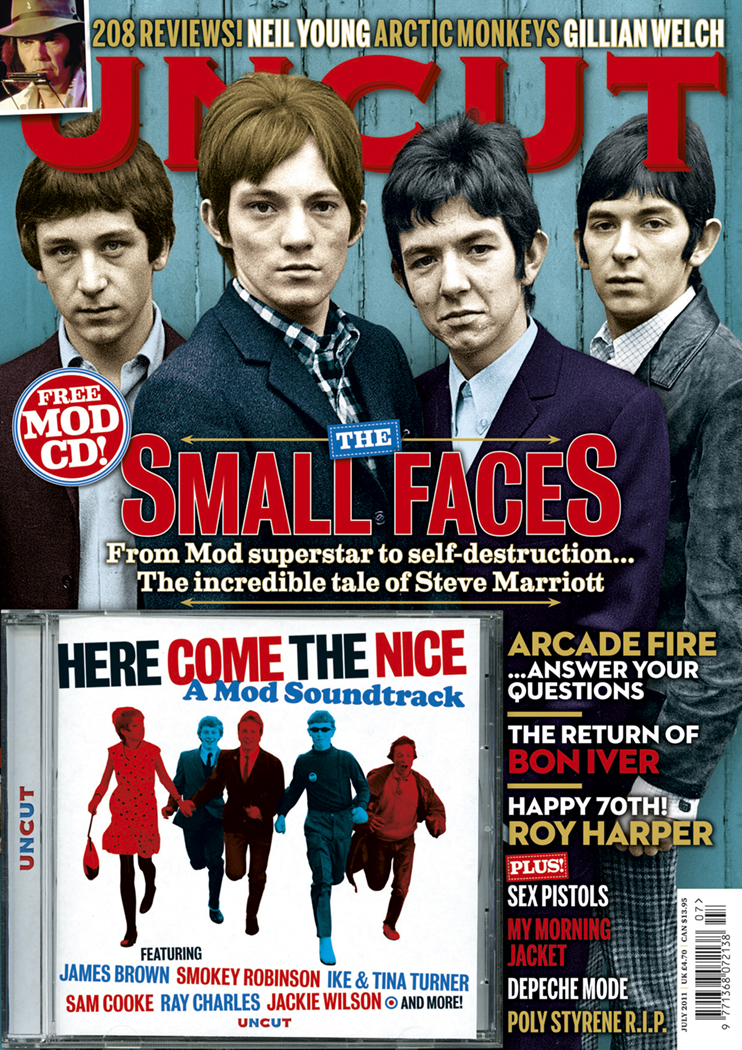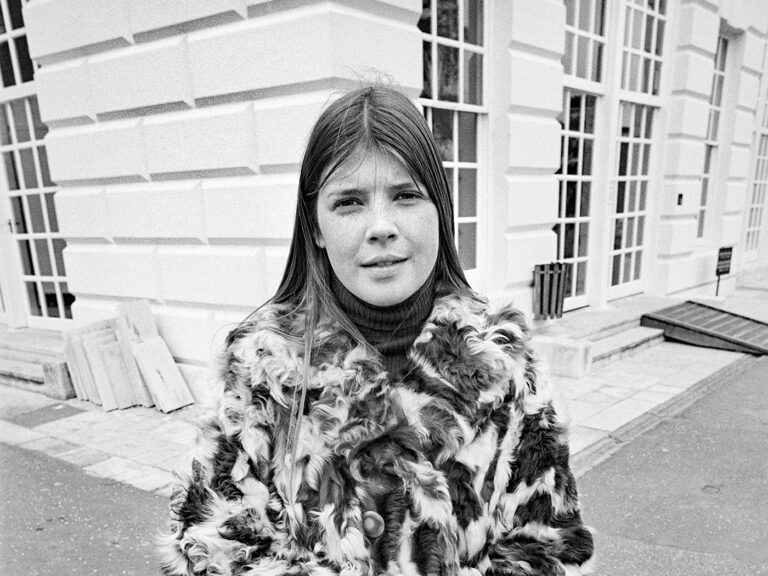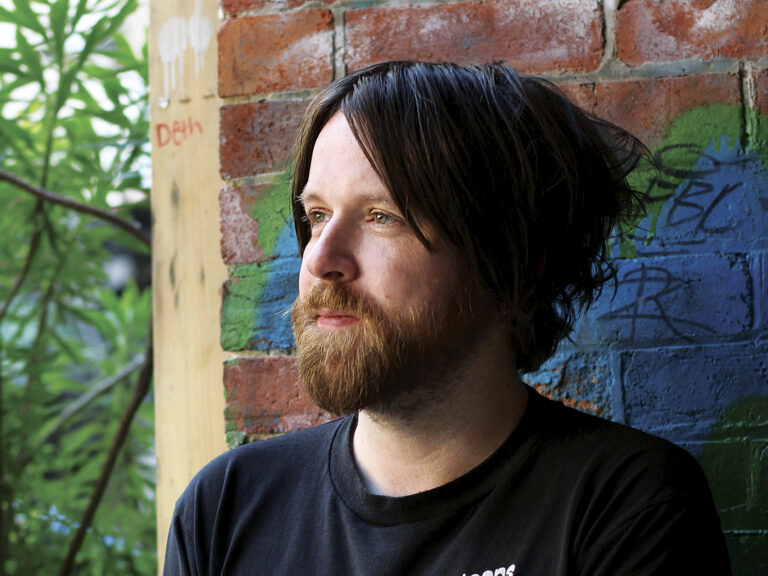As they gather round the corner table in Norwich’s Gonzo’s restaurant, it would be hard to mistake the exotic ensemble of big hair, bold hats, flouncy shirts and leather trousers sported by the various members of Bad Touch as belonging to anything other than a rock’n’roll band. “We have always wanted to be a feelgood rock band,” says lead singer Stevie Westwood. “You can be a sexy, moody rock band, or you can be a feelgood rock band. We are definitely the second.”
Formed in Norfolk by Westwood and guitarist Dan Seekings with bassist Michael Bailey, Bad Touch have recently taken on two new members – drummer Brad Newlands and guitarist Pete Lance. The band were inspired by a youthful love of hard rock acts like Guns N’ Roses and AC/DC, as well as the showmanship of local heroes The Darkness.
The new lineup hits the road in March for an eight-date tour with The Dust Coda, which will see Bad Touch headline shows in Newcastle, Nottingham, Glasgow and their home city of Norwich, as well as playing London’s O2 Academy Islington. The band will play tracks from the three albums they have released on Marshall, including Kiss The Sky, recorded at the legendary Rockfield studio, and their most recent record, Bittersweet Satisfaction, recorded at Marshall’s Milton Keynes studio.
Signing to Marshall felt like a homecoming for Bad Touch. After playing shows around Norwich and nearby Peterborough and Cambridge, Bad Touch entered Marshall’s Ultimate Band competition in 2013 and found themselves in the final five, which meant performing live in Milton Keynes in a showdown with their four rivals. Bad Touch won the event, which meant endorsement from Marshall and a spot on the Download festival lineup. The exposure gave Bad Touch a foothold outside the Anglia region and was followed by a UK tour supporting The Quireboys, where their thrilling live show brought them to the attention of a wider circuit of riff-hungry rock fans.
“The competition was a great way into the Marshall family and they have really taken care of us,” says Seekings. “Since then, I have only used Marshall amps. We stayed in touch and when they started the record company, they asked us to sign. It felt like we’d come full circle and we are part of the family. If I need to borrow something, they will always help. Last Christmas they sent us all Bluetooth speakers and headphones. I got this box at home and thought it was sent to me by mistake, but it was a Christmas present from the label.”
Indeed, so close is the relationship between label and band that when Marshall wanted someone to test drive the new studio, they invited Bad Touch to Milton Keynes to record with producer Chis Sheldon, whose credits include Foo Fighters, Pixies and Therapy?.
Bad Touch recorded an upbeat version of Edwin Starr’s “25 Miles”, and their current live set includes an even more unlikely cover – Alanis Morissette’s “Hand In My Pocket”. “People really don’t expect it,” says Seekings. “We started it almost as a joke, but we do it a bit like The Black Crowes and it’s become really popular.”
It’s a track that Westwood particularly enjoys performing as it feels like a special moment for fans – this isn’t a song they have committed to record, so the only way to hear it is by getting to the show. That reflects Bad Touch’s long-standing love of live performance, something that once saw them play 280 gigs in a single year. The group work hard at perfecting their live show and include drums solos, guitar solos and moments of audience interaction – all designed to deliver a memorable experience for fans.
Seekings highlights the importance of growing up with The Darkness as the local heroes. “They put on a great rock’n’roll show in a way that not many bands can do these days,” he says. “They play every gig like it’s Wembley Stadium and that’s what we aspire to. We work hard on the live act. We know we have written good songs, but we don’t just walk on and play them the way we recorded them, say goodbye and leave. We want people to come, to get involved and go home having had a great time.”
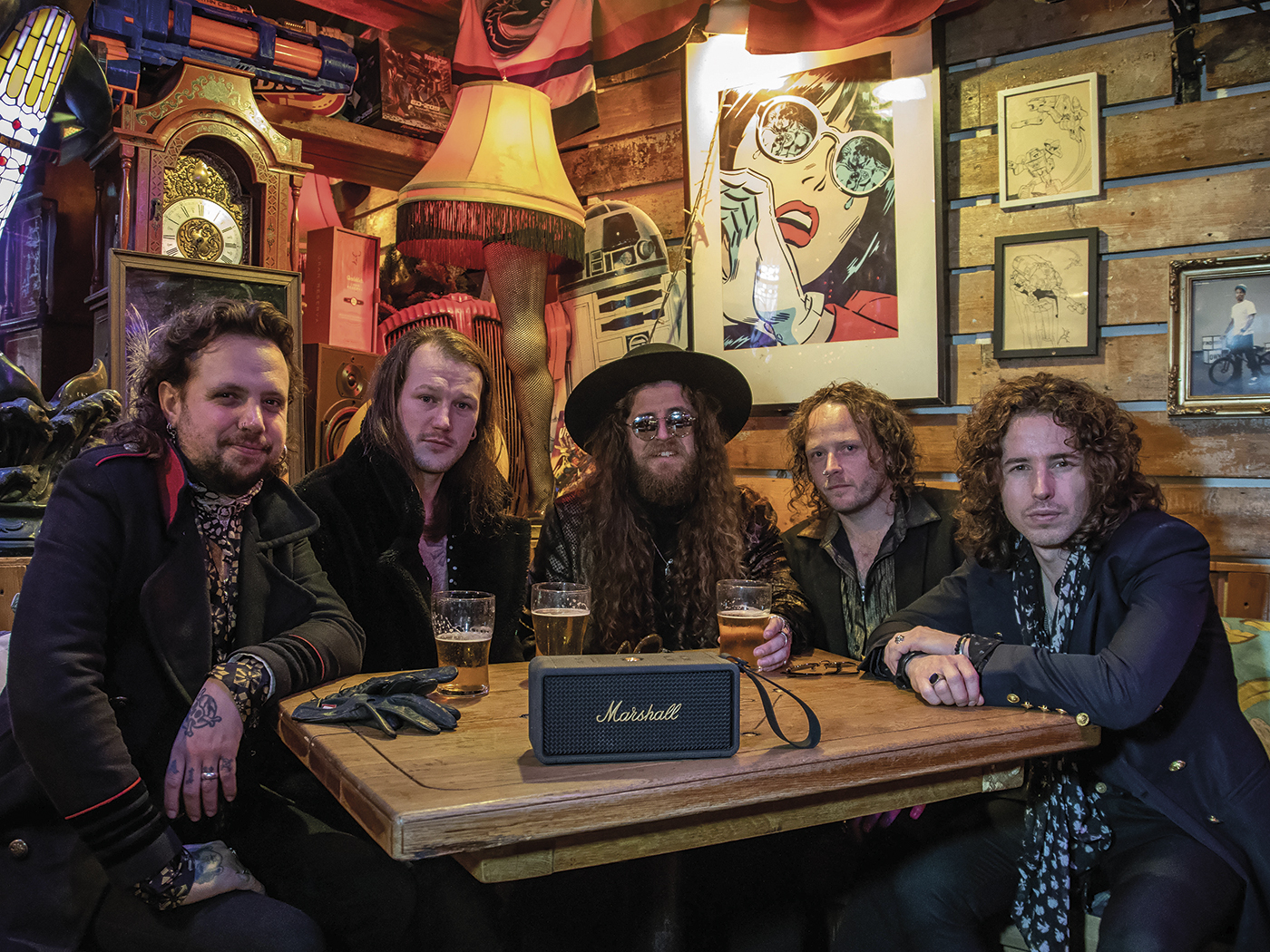
City To City: Norwich
Bad Touch sing the praises of the city’s busy live scene
‘‘The thing about Norwich is that it’s about two hours from everywhere,” says Brad Newlands, Bad Touch’s new drummer and a resident of the West Midlands town of Cannock. But with three of the band still living in East Anglia, Norwich remains Bad Touch’s main base and Uncut meets the band in Gonzo’s, a funky burger restaurant where the walls are adorned with pop culture memorabilia. The band are delighted to see Die Hard is being silently played on a big screen, while Newlands taps along to the soundtrack of classic rock and indie.
Gonzo’s is an ideal spot to talk about the virtues of Norwich as it is nextdoor to sister venue Voodoo Daddy’s, a basement space that hosts regular live shows for Norwich’s busy live scene. “There were three shows I could have gone to just this weekend,” says metal-loving bassist Michael Bailey, who is planning to see a local grindcore band that evening at one of the city’s clubs.
Like most bands, Bad Touch started local. Their first shows were in their nearest pub, the Cherry Tree in Dereham, a town about 15 miles outside Norwich. The next step saw them join the Norwich live circuit with regular gigs at The Brickmakers and King Edward VII. The Brickmakers, which once hosted a young Ed Sheeran, remains a mainstay of the live scene having survived a rent raise through the support of locals, including Dave Rowntree of Blur, who was then on Norfolk County Council. However, the King Edward VII has closed – and Bad Touch were invited to play the closing night, a bittersweet occasion that allowed them to pay respects to a landmark. “It had been crucial to our development,” says Stevie Westwood. “It was the first place where we could play loud, get paid and get better.”
Here Norwich’s relative isolation proved to be a benefit, as it gave Bad Touch a secure environment in which to develop their live show, while the infamous restraint of the Norwich audience encouraged them to work hard at building rapport with the crowd. The city’s location means that Norwich isn’t always on the touring circuit, despite the presence of the LCR at the University Of East Anglia, which holds 1,500 and has hosted acts from The Who to The Flaming Lips. Bad Touch have played LCR once, in support of a rapper. “It was a very strange show,” says Westwood. “I remember looking at the audience of 14-year-old girls looking up at us and having the worst time of their lives – but maybe one of them ended up forming a band.”
Another important venue is the Arts Centre, where Richey Edwards once carved “4 Real” into his arm after a gig by the Manic Street Preachers. It’s been a staple on the indie circuit for generations. “One of my favourite gigs was seeing Towers Of London at the Arts Centre when I was 15,” says Seekings. “It was rowdy and crazy and exciting. Norwich isn’t always on the circuit – some bands completely miss it out – so when a decent band comes through, it’s a big deal.”
When Bad Touch did begin touring the country, Norwich’s location meant long hours in the tour van – which is the ideal time to listen to music through the band’s Marshall headphones or the Middleton Bluetooth speaker. Bad Touch have become so fond of Marshall gear that new guitarist Pete Lance is trying to persuade his wife to have some Marshall amps in the bedroom. “We could use a Marshall stack as a bedside table or a place to throw your clothes,” he grins. “It would look so cool.”
Eager to show off the charms of Norwich – a city that once had a pub for every day of the year and a church for every week – Bad Touch lead Uncut from Gonzo’s through the centre to St Benedict’s Street. This was once a music mecca and still has a couple of record shops and places selling guitars and drums. “When we were growing up, St Benedict’s Street was nothing but music stores and record shops,” says Seekings. “It was like the Denmark Street of Norwich. It had two Cash Converters and the big one only sold music gear.” As bassist Bailey notes, that is where he picked up his first guitar.
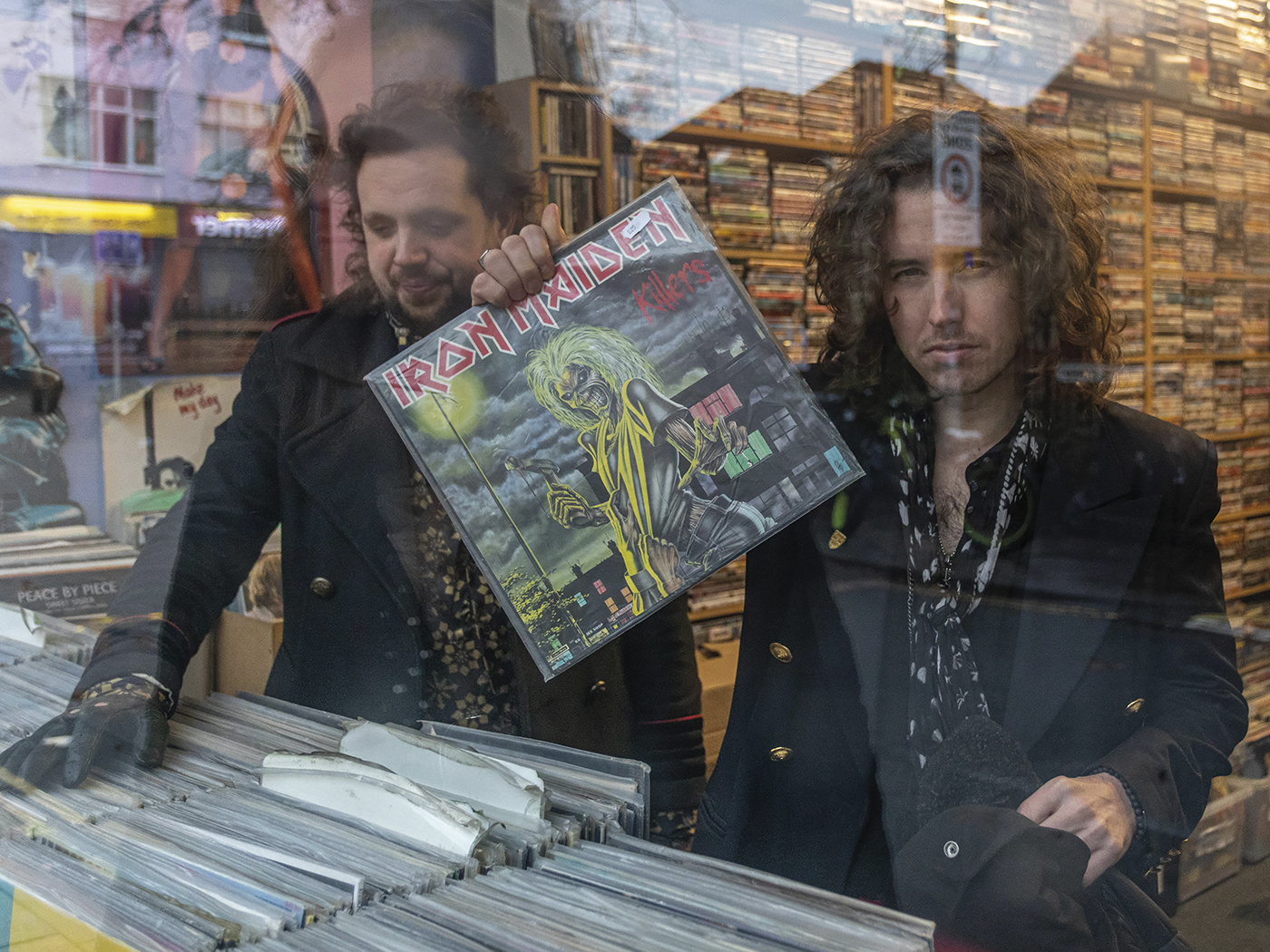
Vinyl is still king at record shops like Soundclash, Circular Sound and Press To Play. The window of the latter is adorned with classic LPs including Sgt Pepper and Led Zeppelin II, covers eerily bleached as white as bone after decades of exposure to sunlight. Inside, the owner is celebrating the shop’s 27th anniversary that weekend, delighted to have seen vinyl come back into fashion since he opened the doors in 1997. As the band thumb through the racks, Seekings explains that nearby Soundclash played an important role in the local scene as it was where people went to buy gig tickets in pre-internet days.
The tour of Norwich takes in a couple of pubs and a church before ending at the Waterfront, a blue-fronted 700-capacity riverside venue that has hosted Paul Weller, Nirvana, Arctic Monkeys and Amy Winehouse. It’s a home venue for Bad Touch who will be headlining there in March during their UK tour with The Dust Coda. The band are looking forward to the show, as they rarely play their home city these days. “We aren’t really on the local scene as we are now a national band, so we can’t wait to play here in March,” says Seekings, delighted by Norwich’s still-thriving music scene. “No matter how it gets beaten down, live music never goes away.”
